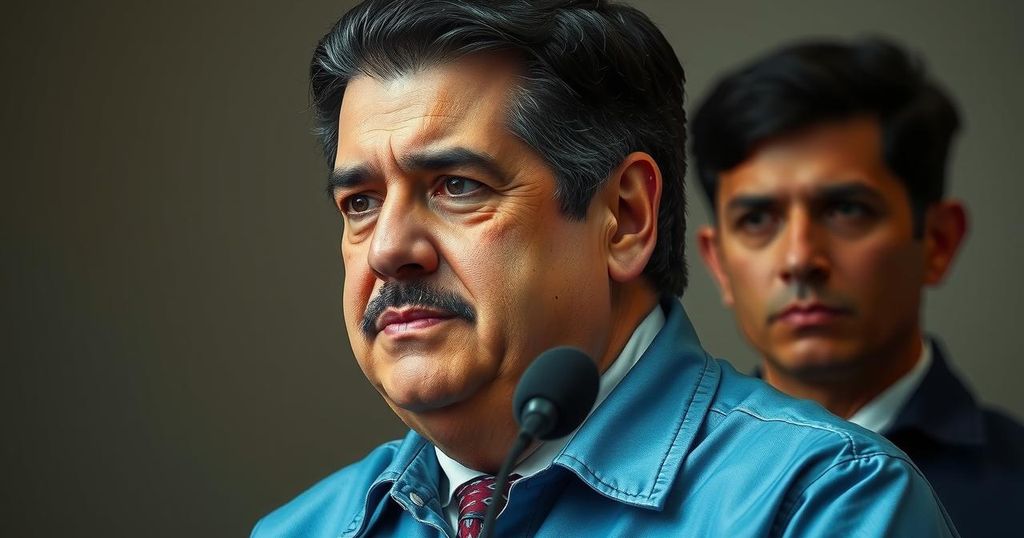The Escalating Repression in Venezuela Under Nicolás Maduro
Venezuela has seen an alarming increase in repression following the contentious July 28 election, with widespread fear among citizens as the government targets dissenters. Amidst heightened surveillance and arrests, six opposition aides seeking asylum within the Argentine embassy face dire circumstances as their sanctuary turns into confinement. Maduro’s regime demonstrates a decisive shift toward punitive measures against those expressing opposition without overtly threatening the regime itself.
Venezuela is currently experiencing a profound and pervasive form of repression, particularly following the election on July 28, where a significant portion of the electorate ostensibly rejected President Nicolás Maduro. Once viewed as an abstract concept known as “la situación,” discussions now revolve around the more immediate and menacing plight referred to as “la represión.” Citizens live in trepidation, compelled to self-censor, avoid confrontations, and abandon sociopolitical dialogue to ensure their security in a climate where governmental scrutiny and repression have escalated dramatically.
Under Maduro’s regime, the opposition faced tangible obstruction, particularly after the popular leader María Corina Machado was barred from participation in the election. Despite this, the opposition rallying drew notable enthusiasm. Reports indicate Maduro’s official campaign results contradicted the widespread belief that he had lost the election, yet he remains entrenched in power. The aftermath has ushered in a marked increase in repression, targeting anyone perceived as a political threat, which now extends to individuals previously considered low-profile.
In the months since the election, Venezuelans have witnessed a disquieting shift in the treatment of dissenters, with government forces arresting individuals even in the comfort of their homes. Citizens report policing of their digital activities, with individuals facing imprisonment for possessing anti-regime content on their devices. This overarching climate of fear engenders a heightened sense of insecurity, prompting ordinary citizens, including my relatives, to alter their online habits to mitigate risks associated with governmental scrutiny.
Significantly, the plight of six individuals who sought asylum within the Argentine embassy has garnered attention. The asylum seekers’ situation has evolved from protection by the international stipulations of the Caracas Convention to confinement within the embassy site itself. Though they initially felt secure, the Venezuelan government systematically curtailed their liberties, drawing attention to the alarming regression of respect for international asylum norms and a concerning shift towards hostage-like scenarios involving diplomatic missions.
The state of repression in Venezuela has evolved markedly since the presidency of Nicolás Maduro. Following Hugo Chávez’s death in 2013, the country has grappled with severe economic decline, rampant crime, and widespread emigration. Venezuelans once referred to challenging conditions as “la situación,” but as repression intensified, discussions shifted to “la represión.” The electoral climate illustrates how Maduro bundled concessions in exchange for quiescence, only to retaliate against those who disavowed his authority in the recent elections. Such political dynamics highlight a broader trend of dictatorial governance where fear supplants dialogue and dissent is met with punitive measures.
The current trajectory of repression in Venezuela under Nicolás Maduro highlights a chilling shift in governance characterized by intensified fear and suppression. As political dissent is met with systematic retaliation, ordinary Venezuelans grapple with the reality that non-confrontational stances no longer ensure safety. The treatment of opposition members and the increasing precariousness of political asylum reflect an alarming disregard for human rights and international laws, raising critical questions about the future of civil liberties in Venezuela.
Original Source: www.theatlantic.com




Post Comment